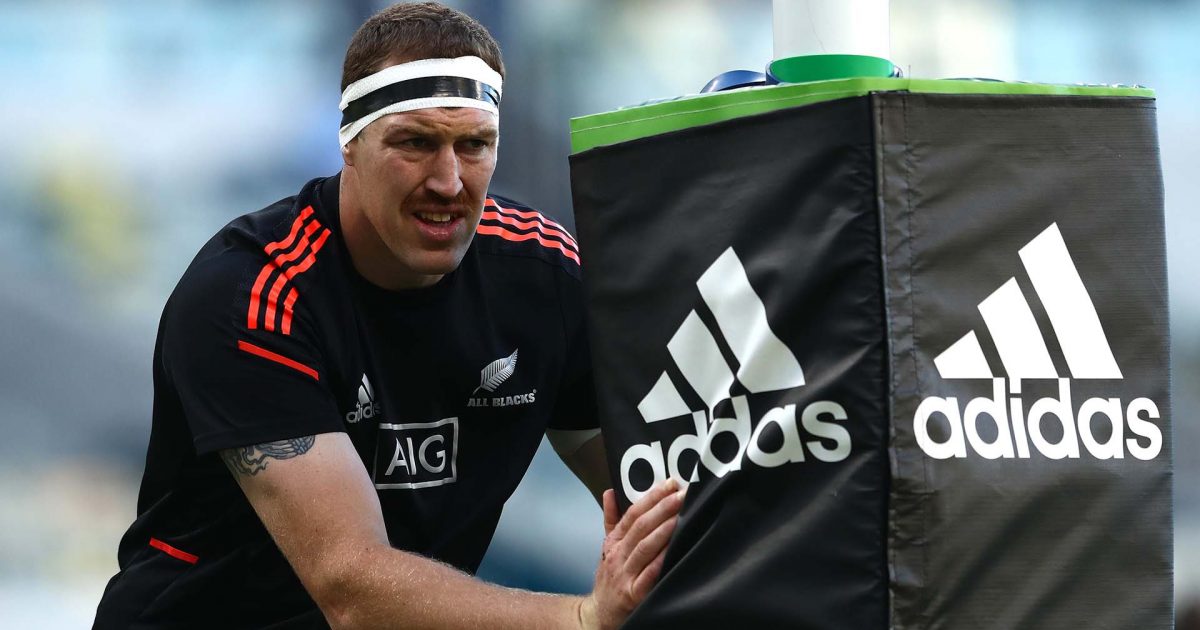Retallick reveals the key lessons from Springboks loss ahead of tour

After a week off to refresh and recharge following their Rugby Championship success, the All Blacks are back into the swing of training ahead of their end-of-year tour of the United States and Europe.
Remaining in Queensland after locking the Rugby Championship away for the first time since 2018, the All Blacks have moved to the Sunshine Coast to undertake a week-long training camp prior to their departure to Washington DC on Sunday.
The camp comes at a good time for Ian Foster’s squad, who were afforded a seven-day break in Noosa last week following a run of five tests against the Wallabies, Los Pumas and Springboks in consecutive weekends.
Despite doing enough to clinch their fourth piece of silverware this year, the All Blacks closed out their Rugby Championship campaign with a 31-29 defeat at the hands of South Africa on the Gold Coast a fortnight ago.
The loss was a stark reminder that, even though they impressed in their previously unbeaten stretch through their test schedule, there is still plenty of work to be done by Foster and his players before they develop into the complete overall product.
In order to become that, veteran All Blacks lock Brodie Retallick believes improvements need to be made in certain areas of his side’s game, which he said on Tuesday has been a key focus in the early stages of this week’s training camp.
“We kind of left it [the loss to the Springboks] alone in Noosa and, this morning, we had our first kind of review around some of what we did on our attack and we went out and trained it today,” Retallick said.
“That’s kind of the focus over these two days, and then, tomorrow, we’ll look at defensive review and set piece review. I guess we just need to be better there, to be fair.
“We still created some opportunities and didn’t execute, and then, at times, we were put under pressure when we didn’t make a lot of gain line and didn’t take the best of options.
“It’s been good to have this time, I suppose, to look at the footage and then go out and train it and break it down so, moving forward, when we get up to Europe, we can nail it.”
As a second rower and New Zealand’s chief lineout caller in the absence of long-term lock partner Sam Whitelock, Retallick has placed a particular emphasis on improving his team’s set piece.
The All Blacks looked especially wobbly at the scrum and lineout towards the end of both matches against the Springboks, whose forward pack are renowned for their physicality and quality.
View this post on Instagram
Analysis of the loss to Springboks has highlighted where the All Blacks went wrong at the lineout, with Retallick taking ownership of his failings in that match as the Kiwis struggled to impose themselves against their South African counterparts.
“They put us under a lot of pressure, but I think we need to break it down,” the 30-year-old, who acted as All Blacks vice-captain throughout the Rugby Championship, said.
“It’s got to be better there and call some better options and not be so focused on them. I’ll take a lot of responsibility there and it’s something we’re going to tidy up over the next couple of days.”
As the week progresses, the All Blacks will begin to turn their focus to next weekend’s clash against the USA Eagles at FedEx Field in a clash that should be won comfortably by the visiting team.
It will be the first time in seven years the two teams have met, with the All Blacks running away with a 74-6 victory over the Americans, who lost to Uruguay in a World Cup qualifier last weekend, at a sold-out Soldier Field in Chicago on that occasion.
Beyond that, four straight tests against a depleted Welsh team, Italy, Ireland and France beckon in Europe in what will be a challenging set of fixtures for New Zealand.
View this post on Instagram
That is primarily due to the fact that most of those sides utilise similar game plans to that of the Springboks, meaning the All Blacks will need to show signs of improvement in their areas of weakness if they are to return home victorious.
Those matches will also end a two-year wait for tests between the All Blacks and European opposition, with New Zealand’s last outing against a Six Nations outfit coming against Wales in the bronze final of the 2019 World Cup.
Retallick said exposure to some of Europe’s elite teams will be beneficial for the current crop of All Blacks, many of whom are yet to face any international sides north of the equator.
“I think it’s going to be massive in terms of understanding where this group is at, and also growing our game,” the 89-test star said of playing Wales, Italy, Ireland and France.
“We obviously played Australia and Argentina, who were a similar style to us, and someone like South Africa that plays different to the rest of us, and then we’re going to go up to Europe, where they’ll probably play a similar game [to the Springboks].
“It’s going to be different conditions, it might be cold and wet, so it’s going to be hugely important for a measure for ourselves, but also a great learning for the squad, I think.”
Listen to the latest episode of the Aotearoa Rugby Pod below:




























